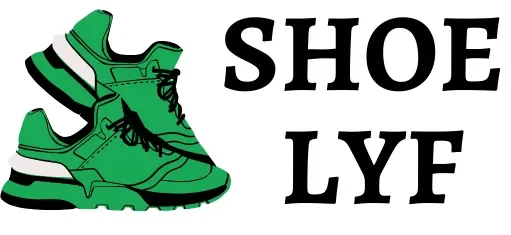Hey there, foot pain warriors! If you’re someone who suffers from the dreaded plantar fasciitis, you know how debilitating and frustrating this condition can be. From those first agonizing steps in the morning to the lingering aches throughout the day, plantar fasciitis can seriously cramp your style (and your feet!).
But fear not, because today we’re going to explore whether a trusty pair of Asics sneakers could be the key to alleviating your plantar fasciitis woes. After all, finding the right footwear is crucial when it comes to managing this pesky foot condition.
First things first, let’s quickly recap what plantar fasciitis actually is. In a nutshell, it’s an inflammation of the plantar fascia – that thick band of tissue that runs along the bottom of your foot, connecting your heel bone to your toes. When this fascia becomes irritated or overstretched, it can lead to excruciating heel pain, arch pain, and all-around foot misery.
what causes plantar fasciitis?
So, what causes plantar fasciitis in the first place? Well, there are a few common culprits:
- Excessive pronation (inward rolling of the feet)
- High arches or flat feet
- Sudden increase in physical activity
- Obesity or pregnancy weight gain
- Wearing unsupportive or worn-out shoes
And that last point is where Asics comes into play. As a leading brand in the world of athletic footwear, Asics is renowned for its commitment to innovative design and foot-friendly features – which could make their shoes a potential game-changer for those battling plantar fasciitis.
Why Asics Might Work for Plantar Fasciitis
Here are a few key reasons why Asics sneakers could be a solid choice if you’re dealing with plantar fasciitis:
1. Excellent Arch Support
One of the hallmarks of many Asics shoe models is their dedicated arch support systems. From their iconic GEL cushioning to specialized midsole designs, Asics shoes are engineered to cradle and support the arches of your feet – a crucial factor in alleviating plantar fasciitis pain.
2. Heel Cushioning and Stability
Heel pain is often the most debilitating symptom of plantar fasciitis, which is why Asics’ focus on heel cushioning and stability can be so beneficial. Their shoes often feature technologies like GEL or FlyteFoam cushioning in the heel area, as well as sturdy heel counters to prevent excessive rearfoot motion.
3. Gait Guidance and Motion Control
Many Asics models are designed with gait guidance and motion control features, which can help correct issues like overpronation that may contribute to plantar fasciitis. From dual-density midsoles to guidance line technology, these features aim to keep your feet aligned and supported throughout your stride.
4. Durable Construction
Plantar fasciitis can often be exacerbated by wearing shoes that are worn out or lack proper support. Asics is known for their durable, high-quality construction, ensuring that their shoes maintain their cushioning and supportive properties even after extended wear.
Potential Drawbacks of Asics for Plantar Fasciitis
Of course, no shoe brand is perfect, and there are a few potential downsides to consider when it comes to Asics and plantar fasciitis:
1. Varying Support Levels Across Models
While Asics generally excels in the support and cushioning department, not all of their shoe models are created equal. Some of their more minimalist or fashion-focused styles may lack the robust arch support and cushioning needed to effectively manage plantar fasciitis symptoms.
2. Potential for Heel Slippage
A common complaint among some Asics wearers is heel slippage, which can be particularly problematic for those with plantar fasciitis. Excessive heel movement can exacerbate inflammation and discomfort, so it’s important to find Asics models with a secure, locked-in heel fit.
3. Limited Custom Orthotic Compatibility
While many Asics shoes have removable insoles, their specialized midsole designs and arch support systems may not always play nicely with custom orthotics or inserts – a potential issue if you require extra arch or heel support beyond what Asics offers.
4. Higher Price Point
Let’s be real – quality footwear often comes with a heftier price tag, and Asics is no exception. Their technologically advanced shoes can be a significant investment, which may not be feasible for everyone’s budget when dealing with plantar fasciitis.
Tips for Choosing the Right Asics for Plantar Fasciitis
If you’re convinced that Asics could be the way to go for managing your plantar fasciitis, here are some tips to help you find the perfect pair:
- Focus on Asics models specifically designed for motion control, stability, or maximum cushioning – these are often their most supportive options.
- Look for shoes with dedicated heel cushioning technologies, like GEL or FlyteFoam, as well as sturdy heel counters for added stability.
- Try on multiple sizes and widths to ensure a secure, locked-in fit that doesn’t allow for excessive heel slippage.
- Consider visiting a specialty running or athletic store, where knowledgeable staff can analyze your gait and recommend the best Asics model for your unique foot needs.
- Don’t be afraid to try on multiple styles and walk around the store to get a feel for the cushioning and support before making your purchase.
And remember, while finding the right footwear is crucial, it’s often just one piece of the plantar fasciitis management puzzle. Stretching, icing, orthotics, and other therapies may also be recommended by your healthcare provider to fully address this frustrating foot condition.
At the end of the day, Asics’ commitment to innovative cushioning, support, and motion control technologies makes many of their shoe models a solid option for those dealing with plantar fasciitis.
Just be sure to do your research, try on multiple styles, and listen to your feet – because when it comes to plantar fasciitis, finding the right footwear can be a true game-changer.
FAQs
Here are some frequently asked questions about Asics and plantar fasciitis:
Q: What are the best Asics shoes for plantar fasciitis?
A: Some of the top Asics models recommended for plantar fasciitis include the Gel-Kayano, Gel-Nimbus, Gel-Cumulus, and Metaride. These shoes offer excellent cushioning, arch support, and motion control features.
Q: Do Asics shoes come with built-in arch support for plantar fasciitis?
A: Many Asics shoes feature dedicated arch support systems, like their signature GEL cushioning or specialized midsole designs. However, the level of arch support can vary across different models and styles.
Q: Can I wear Asics shoes with custom orthotics for plantar fasciitis?
A: While many Asics shoes have removable insoles, their specialized midsole designs and arch support systems may not always play nicely with custom orthotics or inserts. It’s best to try on the shoes with your orthotics to ensure a proper fit.
Q: How long do Asics shoes typically last for someone with plantar fasciitis?
A: The lifespan of Asics shoes can vary depending on your activity level, weight, and the severity of your plantar fasciitis. However, most experts recommend replacing running or walking shoes every 300-500 miles or every 6-12 months to maintain proper cushioning and support.
Q: Are Asics shoes good for other foot conditions besides plantar fasciitis?
A: Yes, Asics’ focus on cushioning, stability, and motion control can make their shoes a good choice for various foot conditions, such as overpronation, heel spurs, and even conditions like arthritis or post-injury recovery.
Q: Do Asics offer any specific plantar fasciitis relief or support features?
A: While Asics doesn’t have a dedicated “plantar fasciitis” line, many of their shoes incorporate features that can help alleviate plantar fasciitis symptoms, such as heel cushioning, arch support, and motion control technologies.
conclusion
Remember, finding the right footwear is just one aspect of managing plantar fasciitis. It’s always best to consult with a healthcare professional or podiatrist to develop a comprehensive treatment plan that addresses your unique needs and foot health goals.

